Gut Health and Child Survival Scientific Priority Area

The Challenge
Although dramatic progress has been made in reducing child deaths globally over the past several decades, millions of children continue to die annually in low and middle-income countries, primarily from infectious diseases. Our group focuses on targeting interventions and approaches to improve survival, growth, and development among the most vulnerable children globally, specifically those related to enteric and neglected tropical diseases.
Our Response
We seek to bring together clinicians, epidemiologists, microbiologists, researchers, and implementation scientists who share a common goal of improving outcomes among the most vulnerable populations globally. Our team currently leads multiple clinical trials and implementation research studies to better understand the unique host, pathogen, environmental, and health system determinants of child health. Equipped with this information and appropriate strategies for delivering evidence-based interventions, we strive to ensure children survive and reach their developmental potential.
Areas of Focus
Child Survival
Many children suffer an elevated risk of mortality and chronic malnutrition months after acute infectious illnesses. This prolonged risk may be due to inadequately treated or new bacterial infections, a prolonged state of inflammation as a result of the infection and its associated treatment, or immune-deficiencies that arise after an illness.
Within clinical trials, we are testing whether empiric use of a broad-spectrum antibiotic improves post-infection survival in Kenyan children. Through data and samples collected in these studies, we are building a platform to identify mechanisms and, eventually, to test additional interventions for reducing the short and long-term consequences of infectious diseases in children.
Growth and Nutrition
Recent estimates suggest that almost half of all childhood deaths are attributed to malnutrition. The relationship between malnutrition and enteric diseases is cyclical; malnutrition is a serious consequence of enteric and diarrheal disease and undernourished children experience a higher risk of death after infection.
Our team is leading a multi-country network of clinical research centers from Sub-Saharan Africa, South East Asia, the UK, and the USA dedicated to identifying risk factors that increase mortality, hospital readmission, and poor recovery in children who are malnourished and suffering from acute infection.
Enteric Disease and Function
Specific bacterial and parasitic enteric infections contribute a disproportionate burden to diarrheal disease, malnutrition, and poor academic performance. We conduct an array of evidence-generating activities to inform international prevention and treatment policy of specific enteric infections including literature reviews challenging current management guidelines for Shigella infections, household Cryptosporidium transmission studies, and clinical trials testing the feasibility of integrated approaches to eliminating soil-transmitted helminths.
Neglected Tropical Diseases
Neglected tropical diseases, or NTDs, are a group of infections that disproportionately affect populations without adequate access to safe water, housing, or sanitation. Often referred to as diseases of poverty, NTDs perpetuate inequities through associated morbidities such as blindness (trachoma and onchocerciasis), severe anemia, impaired growth and cognitive development (soil-transmitted helminths), elephantiasis (lymphatic filariasis), and other chronic conditions that prevented infected individuals from reaching their full income earning potential. Our team has a suite of studies, including clinical trials and implementation research studies, that address opportunities to interrupt the transmission of several NTDs through the delivery of community-based interventions that are acceptable, feasible, and delivered with high coverage.
Highly Vulnerable Populations
Implementation Science
Many of our studies include both a focus on the clinical effectiveness of new or existing therapeutics, as well as opportunities to improve the delivery of the evidence-based interventions. Our research uses implementation science methods to determine the acceptability, appropriateness, cost, feasibility, fidelity, reach, and sustainability of different strategies to increase the impact of clinical interventions. At the core of our implementation science work is a focus on equity and stakeholder engagement.
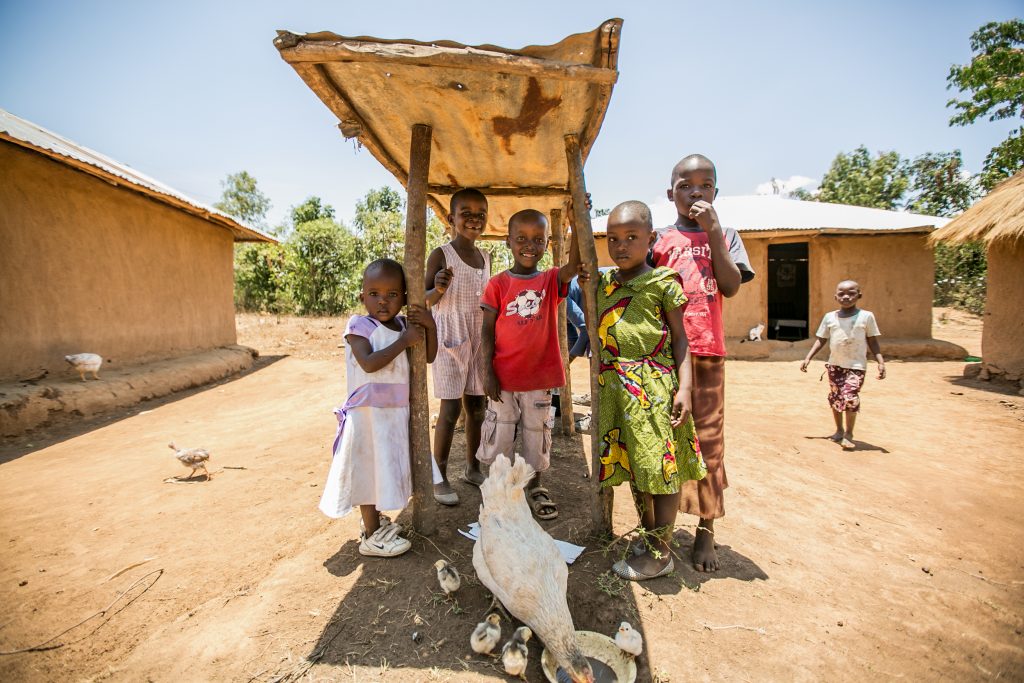
Collaborators
Faculty Directors


MPH, PhD
Assistant Professor
Global Health

MSc, PhD
Assistant Professor
Global Health
Faculty and Technical Advisors


MPH, PhD
Assistant Professor
University of Iceland Public Health Sciences

MD, MPH
Professor
Global Health, Pediatrics, and Health Services [Adjunct]

MSc, PhD
Director, Center for Microbiology Research
Kenya Medical Research Institute

MSc, PhD
Clinical Associate Professor
Global Health

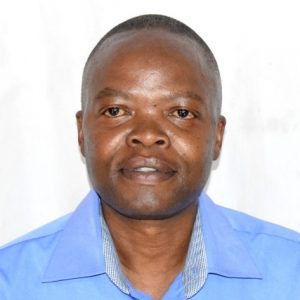
MMed
Head Pediatrician
Homa Bay County Referral Hospital

MPH, PhD
Assistant Professor
Global Health

MPH, PhD
Assistant Professor
Global Health

MBChB, MPH
Affiliate Assistant Professor
Global Health;
Clinical Research Scientist
Kenya Medical Research Institute


MBBS, MPH, PhDc
Acting Assistant Professor
Global Health

MD, MPH
Associate Professor
Pediatrics and Global Health [Adjunct]

MD, MPH
Acting Instructor
Medicine
Staff


MPH
Senior Research Coordinator
EFGH

MPH
Data Manager
Toto Bora, HMO

MPH
Data Manager
EFGH

MPH
Senior Data Manager
DeWorm3, EFGH

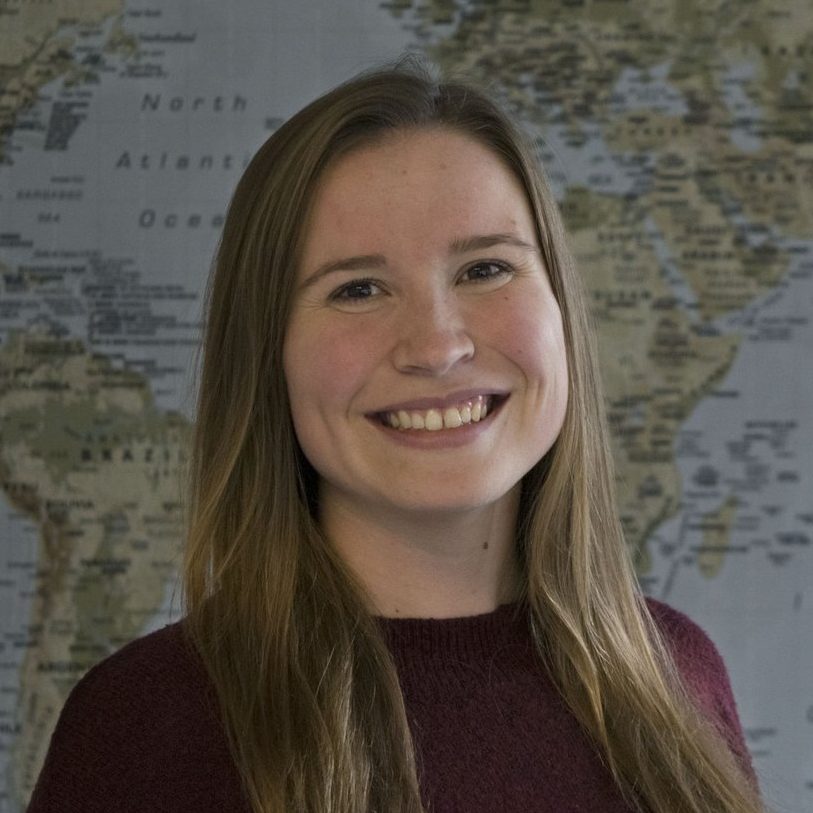
MPH
Project Manager
DeWorm3

BA
Grants Specialist

BA
Program Operations Specialist
EFGH
MA
Grant and Contract Manager


MPH
Research Coordinator

MPH
Program Operations Specialist
DeWorm3

MPH
Data Manager & Analyst
EFGH

MPH
Data Manager
DeWorm3


MPH
Data Manager & Analyst
DeWorm3
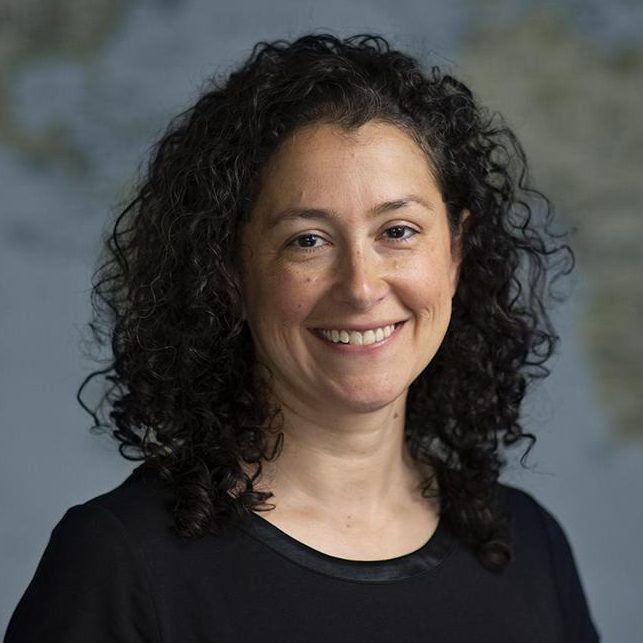
MPH
Director of Research Operations

MPH
Research Coordinator
CHAIN
Trainees

MA
PhD Student
Global Health
PhD Student
Epidemiology
BS
MPH Student
Epidemiology

MPH
PhD Student
Global Health Implementation Science


MPH, MBBS, TDD
DrGH Candidate
Global Health Leadership and Practice

MPH, PhD
Postdoctoral Scholar
Undergraduate Student
Public Health-Global Health
PhD Student
Epidemiology
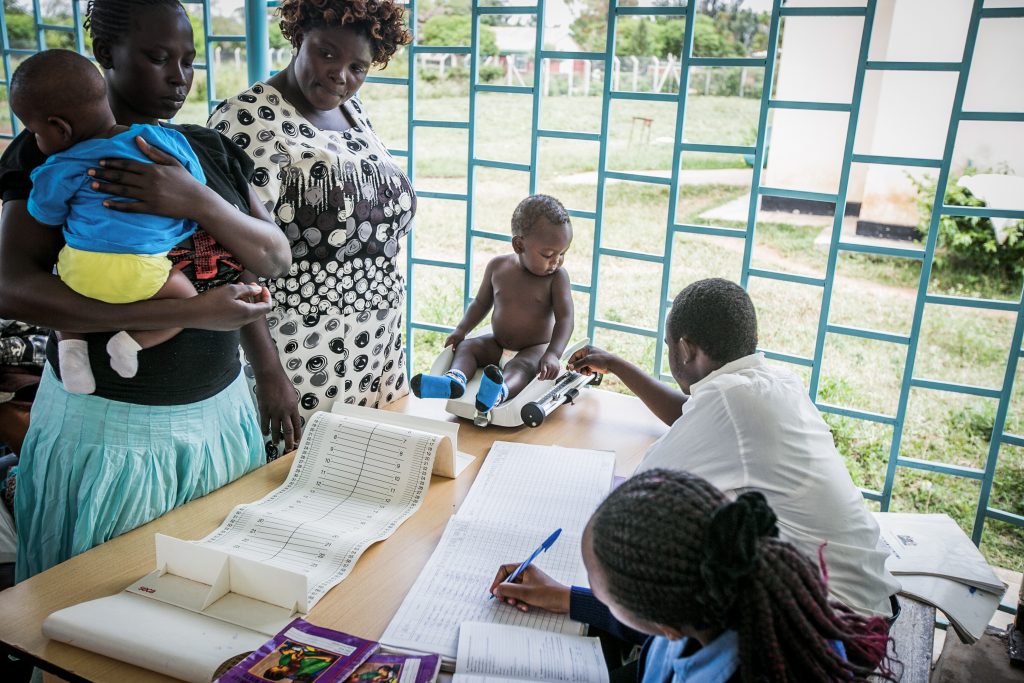
Our Research
Antibiotics for Children with Severe Diarrhea (ABCD)
The ABCD Trial is a multi-site, double-blind, randomized trial that aims to determine if the addition of azithromycin to the standard management of care for acute non-bloody watery diarrhea for high-risk children in Sub-Saharan Africa and South Asia aged 2 to 23 months could reduce mortality and improve growth.
Sponsor: World Health Organization (PO 201941581)
Award Years: 07/08/2014 – 07/31/2019
Principal Investigators: Judd Walson, Benson Singa
Primary Contact: Patricia Pavlinac
Click here to read the study protocol.
Azythromycin to Prevent Post-discharge Morbidity and Mortality in Kenyan Children (AZM)
The Toto Bora Trial is a randomized, double-blind, placebo-controlled trial that aims to determine whether a short course of azithromycin (10 mg/kg on day 1 and 5 mg/kg on days 2-5) given to 1-59 month-old children with recent acute illness being discharged from hospitals reduces re-hospitalization, morbidity, and mortality.
Sponsor: National Institutes of Child Health and Human Development (5R01HD079695-04)
Award Years: 04/01/2015 – 02/29/2021
Principal Investigators: Judd Walson, Benson Singa
Primary Contact: Patricia Pavlinac
Click here to read the study protocol.
The Epidemiology of Extended Spectrum Beta Lactamase and Macrolide Resistance Genes in Kenyan Children Discharged from Hospital (AZM Royalty Grant)
The AZM Royalty Grant aims to establish the burden, risk factors, and potential sharing of antibiotic resistance determinants using bacterial isolates from children recently discharged from hospital enrolled in the Toto Bora Trial.
Sponsor: University of Washington Royalty Research Fund
Award Years: 9/1/2020 – 9/30/2021
Principal Investigator: Patricia Pavlinac
Primary Contact: Patricia Pavlinac
The role of enteric pathogens and antimicrobial resistance in driving clinical and nutritional deterioration, and azithromycin’s potential effect, among children discharged from hospital in Kenya (AZM Enterics)
Utilizing samples collected in the Toto Bora Trial, the AZM Enterics nested study utilizes aims determine associations between enteric bacterial pathogens detected at hospital discharge and risk of death, re-hospitalization, and growth failure in the six-month post-discharge and to evaluate if detection of these pathogens prior to randomization modifies azithromycin’s efficacy.
Sponsor: National Institute of Allergy and Infectious Diseases (5R01AI150978)
Award Years: 03/15/2020 – 02/8/2025
Principal Investigators: Patricia Pavlinac, Benson Singa
Primary Contact: Hannah Atlas
Enterics for Global Health (EFGH), Shigella surveillance study
EFGH is a two-year facility-based, cross-sectional multi-country surveillance and longitudinal study at seven sites in Africa, Asia, and Latin America focusing on children under 36 months of age presenting with moderate-to-severe diarrhea (MSD) to generate data and quickly implement rigorous/efficient Shigella vaccine trials, accelerating the time to vaccine availability for children in low-middle income countries.
Sponsor: Bill and Melinda Gates Foundation
Award Years: 10/30/2019 – 12/31/2021
Principal Investigator: Patricia Pavlinac
Primary Contact: Patricia Pavlinac
Potential modulation of the intestinal microbiome by HIV and antibiotics and implications for EPEC susceptibility and severity
The EPEC study is a cross-sectional study that aims to determine if a reduction in bacterial diversity through antibiotics use or HIV infection is associated with severe enteropathogenic Escherichia coli (EPEC) infection in HIV-exposed Kenyan children aged 6-12 months.
Sponsor: National Institutes of Health (2R21HD094639)
Award Years: 09/21/2017 – 08/31/2019
Principal Investigator: William DePaulo
Primary Contact: Patricia Pavlinac
Click here to read the study protocol.
Childhood Acute Illness and Nutrition Network (CHAIN) Cohort Study
The CHAIN study is a multi-site, prospective, observational cohort study that aims to characterize the biomedical and social risk factors for mortality in acutely ill children (based on MUAC) aged 1 week to 2 years from four African and two South Asian countries in hospitals and after discharge. The CHAIN Consortium seeks to examine infectious, immunological, metabolic, nutritional, and other biological factors that link anthropometric status with risk of in-patient and post-discharge mortality. CHAIN includes several sub-studies, including MITS in CHAIN, Immunology, Body Composition, TB, Neurodevelopment, Breast Milk Composition, Enteric Function, HIV, Macronutrient Deficiencies, Social Science, and Skin CHAIN.
Sponsor: University of Oxford (R41463/CN031 MOD03)
Award Years: 09/15/2015 – 09/30/2021
Principal Investigator: Judd Walson
Primary Contact: Kirk Tickell
Click here to read the study protocol.
The CHAIN Consortium
The CHAIN Consortium is a nested case-control study examining infectious, immunologic, metabolic, nutritional, and other biological mechanisms that link anthropometric status with risk for in-patient and post-discharge mortality, and are independently associated with mortality. The consortium is made up of laboratory partners from around the world.
Sponsor: Bill and Melinda Gates Foundation
Award Years: 11/25/2019 – 6/30/2022
Principal Investigator: Judd Walson
Primary Contact: Kirk Tickell
Surveillance and Epidemiologic Evaluation of COVID-19 in children with severe acute malnutrition and HIV in Kenya
Through the partnership of Clinical Information Network (CIN) and CHAIN, the CHAIN-COVID prospective cohort study in Kenya aims to estimate the incidence of COVID and describe the clinical profile of highly vulnerable children and adults with SARS-CoV-2, including those with HIV and malnutrition. In addition, this study also aims to examine the use of respiratory care interventions and determine the impact of local COVID response on the ability of the Kenyan health system to continue delivering other health services.
Sponsor: Bill and Melinda Gates Foundation
Award Years: 05/01/2020 – 6/30/2021
Principal Investigator: Judd Walson, Benson Singa
Primary Contact: Kirk Tickell
Click here to read the study protocol.
Prevalence and Correlates of Pediatric Guidelines Deviation Across 9 Health Facilities in Kenya
The Pediatric Guideline study combines secondary data analysis and primary qualitative data collection from the CHAIN Network to understand drivers influencing provider adherence to or deviation from pediatric treatment guidelines and to design evidence-based interventions that can be applied to address adherence barriers.
Sponsor: National Institutes of Health (5R03HD099270)
Award Years: 09/17/2019 – 08/31/20201
Principal Investigator: Arianna Means, Benson Singa
Primary Contact: Arianna Means
Minimally Invasive Tissue Sampling to Improve Understanding of Cause of Death in Children (MITS in CHAIN)
Case fatality rates among children hospitalized with acute illness are unacceptably high, even when current standards of care are applied. The Childhood Acute Illness and Nutrition (CHAIN) Cohort study aims to identify risk factors for and causes of death (CoD) among hospitalized children aged 2-23 months. Exact CoD are often unknown and difficult to establish, especially for malnourished children. This study aims to improve the understanding of CoD among well-characterized children who die during inpatient admission for acute illness across a spectrum of undernutrition in Malawi. We also introduce a novel strategy – post-mortem intestinal endoscopy and tissue sampling to assess its feasibility and as a method to understand the contribution of intestinal pathology to mortality. Additionally, we have commenced social sciences research to understand health worker, parent, and community leader’s concerns about MITS and barriers and facilitators to acceptance of MITS in Malawi.
Sponsor: University of Oxford
Award Years: 09/15/2017 – 09/30/2021
Principal Investigators: Donna Denno, Weiger Voskuijl
Primary Contact: Sarah Lawrence
Minimally Invasive Tissue Sampling (MITS) for Lung Pathology and Immune Response in Fatal COVID-19 Patients in Malawi (MITS COVID-19)
Even with access to optimum healthcare and intensive management, including mechanical ventilation in high-income settings COVID-19, caused by the SARS-CoV-2 virus kills 0.5 – 2% of infected individuals through a rapidly developing diffuse parenchymal lung disease and severe hypoxia. A vaccine may take many months to develop and longer to deploy. The virus may infect over 50% of the world’s population and without better treatments could cause upwards of 40 million deaths. Immunomodulation is a major prong of treatment investigatory efforts and may be particularly important as the pandemic spreads in low- and middle-income countries (LMICs), including sub-Saharan Africa (SSA), with much diminished intensive care capacity. Higher rates of malaria, HIV, and malnutrition may influence pathogenesis and immune response in these settings. To most effectively and safely target this immunomodulation it is important to understand the tissue-specific immune responses that drive severe disease in tissue, in particular in the lung.
Sponsor: Bill and Melinda Gates Foundation
Award Years: 08/03/2020 – 08/02/2021
UW Consortium Principal Investigator: Donna Denno
Primary Contact: Sarah Lawrence
Maternal Administered Malnutrition Monitoring System (Mama Aweza Trial)
The Mama Aweza Trial is a randomized controlled trial that aims to establish the efficacy and feasibility of a novel malnutrition screening approach, in which caregivers are taught to use MUAC tapes. The caregivers are enrolled in a semi-automated mHealth SMS system that provides health education and MUAC monitoring support to improve early identification and linkage to care for malnourished Kenyan children aged 6-12 months. This scalable childhood growth monitoring system could enable nutrition programs in low and middle-income countries to optimize screening coverage, leading to early identification of malnutrition, lower costs, and a reduction in global under-five mortality.
Sponsor: Thrasher Research Fund
Award Years: 02/01/2019 – 03/31/2022
Principal Investigators: Christine McGrath, Benson Singa
Primary Contact: Kirk Tickell
Click here to read the study protocol.
Effects of Human Milk Oligosaccharides (HMO) and Gut Microbiome on Growth and Morbidity in HIV-Exposed Uninfected (HEU) Infants - the Tunza Mwana Study
The Tunza Mwana study is a prospective cohort study that aims to evaluate the association between maternal HIV infection, HMO composition, and the infant gut microbiome, and identify breast milk-mediated pathways associated with morbidity and linear growth in HEU infants born to Kenyan pregnant women between 28-42 weeks’ gestation.
Sponsor: National Institutes of Health (5R01HD096999)
Award Years: 04/24/2019 – 03/31/2024
Principal Investigators: Christine McGrath, Benson Singa
Primary Contact: Christina Sherry
Optimizing nutritional care for HIV exposed children in Migori and Homa Bay Counties - The Lishe Bora Study
The Lishe Bora study uses qualitative data collection and systems analysis process mapping to evaluate provider adherence to HIV nutrition guidelines for HIV-exposed Kenyan children under two years of age in Migori and Homa Bay Counties to identify gaps in the care cascades and opportunities to more comprehensively integrate HIV and nutritional care.
Sponsor: University of Washington Center for AIDS Research (CFAR) New Investigator Award
Award Years: 11/16/2020 – 11/15/2022
Principal Investigator: Arianna Means
Primary Contact: Emily Yoshioka
Feasibility of Interrupting the Transmission of Soil-transmitted Helminths (DeWorm3)
The DeWorm3 Study is a series of community cluster randomized controlled trials that aim to determine the feasibility of interrupting soil-transmitted helminth transmission in focal geographical areas (Benin, India, and Malawi) by expanding the targeted population and the frequency of mass drug administration with albendazole. A follow-on investment to DeWorm3 aims to work with the extraction and real-time PCR-based testing of DeWorm3 stool samples for helminth infection to finalize the validation of this methodology, ensuring adequate accuracy, precision and reproducibility, and run approximately 100,000 samples from the 3 DeWorm3 countries through this high-throughput qPCR protocol to assess if the prevalence of STH is <2% soon after mass drug administration.
Sponsor: Bill and Melinda Gates Foundation
Award Years: 11/05/2015 – 9/30/2023
Principal Investigator: Judd Walson
Primary Contact: Arianna Means
Click here to read the study protocol.
Click here to read the implementation science protocol.
DeWorm3 DAC Trial Planning Grant (DeWorm3 Go!)
The DeWorm3 Go! grant supports the expedited analysis of DeWorm3 data to inform data collection and analytical materials designed for use at study midline (after 3 years of MDA) and endline (after two years of surveillance). The analysis will derive interim biological, social, program, and economic- level correlates of MDA treatment coverage across four rounds of community-wide MDA, and inform the development of a targeted policy profile systematically inform the optimal characteristics and requirements of a practical operational guideline for STH transmission interruption programs.
Sponsor: Bill and Melinda Gates Foundation
Award Years: 7/23/2020 – 7/22/2021
Principal Investigator: Arianna Means
Primary Contact: Arianna Means
Neglected Tropical Disease Community of Practice (NTD CoP)
The NTD Community of Practice aims to foster professional development, pride and identity, community-based decision-making, access to technical expertise, and networking through a collaborative platform of African NTD program managers working to solve common neglected tropical disease implementation and management challenges.
Sponsor: Bill and Melinda Gates Foundation
Award Years: 9/28/2020 – 9/14/2023
Principal Investigator: Arianna Means
Primary Contact: Jusufu Paye
Strengthening Economic Evaluation for Multi-sectoral Strategies for Nutrition (SEEMS-Nutrition)
SEEMS-Nutrition is a new three-year project that aims to fill an information gap on costs, cost-effectiveness, and benefits of scaling up food system strategies in resource-constrained areas combating malnutrition. In the spirit of multi-sectoral collaboration, the SEEMS-Nutrition project is working in partnership with the Global Alliance for Improved Nutrition (GAIN), International Food Policy Research Institute (IFPRI), International Livestock Research Institute (ILRI) Helen Keller International (HKI), and Results for Development (R4P). Their findings will allow program implementers and policymakers to make informed decisions about which nutrition interventions to prioritize to address healthy food systems, dietary intake, and improved nutritional status. Such interventions can help improve maternal-and-child health outcomes by promoting optimal dietary and feeding practices during critical windows of time when nutritional needs are the greatest.
Sponsor: Bill and Melinda Gates Foundation
Award Years: 11/05/2018 – 03/31/2024
Principal Investigator: Carol Levin
Primary Contact: Carol Levin
Developing a Two-way SMS Platform to Prevent and Treat Wasting Among HIV-infected and HIV-exposed Uninfected Children (MAMMS IYCF)
This proposal will develop a novel two-way short message service (SMS) platform that targets key barriers to improving nutritional care for HEU and HIV-infected children. This intervention will combine a maternally administered malnutrition monitoring system (MAMMS) with infant and young child education (IYCF) delivered by SMS. After developing the intervention using participatory design methods, we will complete a proof-of-concept quasi-experimental trial of MAMMS-IYCF in the R21. If the R21 milestones are meet, we will use the R33 to conduct a randomized trial testing the effectiveness of MAMMS-IYCF at reduced the incidence wasting, and the duration of wasting treatment. During this trial we will also assess the cost and cost-effectiveness of MAMMS-IYCF, and to better understand which barriers are being successfully addressed by intervention we will measure its effect on key attitudinal and behavioral outcomes including trust in the healthcare system, intention to seek if a child becomes wasted, and IYCF knowledge.
Sponsor: National Institutes of Health (R21HD110150)
Award Years: 08/17/2022 – 07/31/2024
Principal Investigator: Arianna Means, Kirk Tickell
Primary Contact: Rishika Mohanty
Technical Support to the Nigerian Institute of Medical Research
The SARMAAN project will establish an implementation science Technical Support Unit at the Global Center for the Integrated Health of Women, Adolescents, and Children (Global WACh), based at the University of Washington (UW). The mission of Global WACh is to make scientific discoveries, cultivate leaders, and bridge disciplines to advance the tightly connected health and well-being of women, adolescents and children.
Sponsor: The Royal Commonwealth Society for the Blind (Sightsaver)
Award Years: 04/01/2022 – 12/31/2024
Principal Investigator: Arianna Means
Primary Contact: Arianna Means
Lactoferrin and lysozyme to promote nutritional, clinical, and enteric recovery: A factorial placebo-controlled randomized trial among children with diarrhea and malnutrition
Lactoferrin and lysozyme are milk-derived nutritional supplements that may reduce the duration of diarrheal episodes, treat or prevent underlying enteric infections, improve enteric function, and accelerate nutritional recovery. However, it remains unclear whether their antimicrobial action will translate into significant improvements in the long-term clinical and nutritional outcomes of childhood diarrhea. We propose a factorial, double-blind, placebo-controlled, randomized trial to determine the efficacy and mechanisms of lactoferrin and lysozyme supplementation in minimizing the incidence of diarrhea and promoting nutritional recovery among children recovering from diarrhea and wasting. Kenyan children aged 6-24 months who have been discharged from an inpatient or outpatient hospital stay for diarrhea, and have a mid-upper arm circumference [MUAC] <12.5 cm will be randomized to 16-weeks of lactoferrin, lysozyme, a combination of the two, or placebo. This trial will provide much efficacy, mechanistic, and feasibility data from populations most likely to benefit from these interventions.
Sponsor: National Institutes of Health (R01HD103642)
Award Years: 01/01/2021 – 11/30/2025
Principal Investigator: Patricia Pavlinac
Primary Contact: Emily Yoshioka
Enterics for Global Health (EFGH)
This is a facility-based surveillance study to generate data necessary to inform key decisions for Shigella vaccine trials and ready sites for potential Phase IIb and Phase III trials. By achieving these aims we will optimize and standardize microbiologic culture and qPCR capabilities, clinical and anthropometric data collection and safety monitoring and responsiveness. These activities will pave the way for the EFGH country sites to be considered for potential Phase IIb and Phase III Shigella vaccine trials.
Sponsor: Bill & Melinda Gates Foundation
Award Years: 10/18/2021 – 01/31/2025
Principal Investigator: Patricia Pavlinac
Primary Contact: Hannah Atlas
Addressing wasting and stunting in infants and young children by increasing the coverage and quality of selected high impact interventions in Ethiopia
This will be a prospective case-control study leveraging an existing study platform evaluating the etiology of, and risk factors for, adverse post-treatment outcomes to be conducted by Action Against Hunger in Aweil East, South Sudan. Three hundred children 6-59 months old who recover from SAM will be followed at four time points over 6-12 months and compared with a cohort of 240 age- and sex-matched community controls who had not suffered from SAM.
Sponsor: Action Against Hunger
Award Years: 05/01/2022 – 06/30/2024
Principal Investigator: Indi Trehan
Primary Contact: Indi Trehan